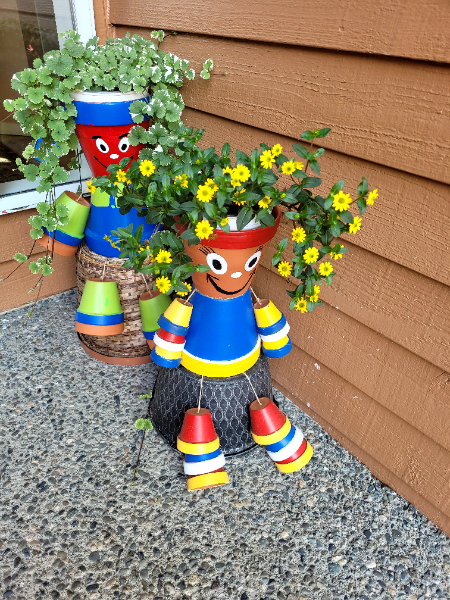Overcoming Overwhelm
Overcoming Overwhelm
Look in any thesaurus, and the synonyms for overwhelm are pretty awful: overpower, subdue, oppress, quash, engulf, swallow, submerge, bury, suffocate.
None of those words are very inviting and certainly don’t have me rushing to sign up to experience any of them.
I imagine you feel the same way.
Yet, to anyone who’s experienced overwhelm, and that’s plenty of us, those words may be all too familiar.
Whether the overwhelm is sudden or cumulative, chronic or acute, the feeling is one of drowning, immobility and powerlessness.
During those times, everything feels too big. It’s not just everyday busyness and packed schedules.
When we’re overwhelmed, making dinner becomes a monumental effort. Bills, housework? Forget it.
Tasks that used to take only 10 or 15 minutes now seem utterly impossible. There seems to be no time for anything.
So, we do nothing.
Worse, we have no faith that this, too, shall pass. We seem hopelessly mired in the quicksand of “too much.”
We keep trying to will our way out of the quicksand with a will that just wants to lie down.
“We live in a very overwhelming time—much more so than in decades past”, says Jan Boddie, Ph.D., a California therapist who trains individuals and consults with businesses on the topic.
And, that was said before the current pandemic!
Even though many of us slowed down at the beginning of the stay-at-home times, now there’s a definite picking up of the speed that was so “normal” prior to COVID 19.
Additionally, now so many people are not only working from home, but they are needing to manage online learning for their children while working and doing all the things that need to happen in a family.
Meals don’t cook themselves. Laundry still needs doing, as does house cleaning and a myriad of other daily chores.
And with all this going on and other family members at home all the time, too, work-life and home life can easily get blended into one of the same, leaving no room for downtime to decompress.
Not to mention not being able to get away from it all with a vacation.
It sure makes for life in the overwhelm lane!
So, how do we overcome overwhelm?
It starts with taking a deep breath.
Then, we need to stop and assess what is meaningful in our lives.
Family? Feeling joy? Having peace of mind? Being compassionate (to ourselves especially)?
When we can be in a relationship with what has meaning to us in the here and now, we can feel a natural connection to our “natural fuel” for getting things done!
Without feeling overwhelmed!
Thus, when we come into alignment with our values and needs, we find the inner resources and spaciousness needed to get on with life.
First, however, we need to identify our individual symptoms and triggers for overwhelm.
Our symptoms can be physical (e.g., nail-biting, clumsiness, neck ache,)
Psychological/emotional (forgetful, rude, defensive, eating mindlessly when not physically hungry)
Social (poor hygiene, inadequate boundaries, not wanting to be around family/friends) or:
Spiritual (loss of sense of purpose, unsure of what’s important).
Triggers are just as individual: a deadline, a certain tone of voice, change can ignite feelings of overwhelm.
Noticing these symptoms and triggers is like setting off the two-minute warning buzzer: time for intervention techniques.
Time to stop and take that deep renewing breath that connects us back to ourselves!
And after we’ve come back to ourselves, it’s time for prevention techniques.
Here are some tools/techniques and practices that will support you in connecting in with YOU and your needs so you don’t get caught up in the drowning effects of overwhelm:
- conscious breathing
- adequate rest
- a focus on healthy eating
- exercise/moving your body/stretching
- self-nurturing practices such as yoga, meditation
- gratitude journaling
If you need support in overcoming overwhelm, make it your priority to reach out and get help in rising above the oppression of overwhelm.
Jackie Foskett helps professional women who are overwhelmed and anxious to free themselves from that rut, prioritize self-care and reach their goals and dreams through hypnotherapy and mind coaching. She’s a specialist in stress and anxiety relief, weight release, hypnobirthing, medical and dental hypnosis, and mindfulness, as well as a published author. She expertly and caringly guides clients through the terrain of their conscious and subconscious minds to live their best lives ever—in mind, body and spirit. Jackie and her husband, Blaine, live in the beautiful Pacific Northwest, in Washington State, and love to explore the outdoors and travel. Living a balanced life is key to her success!
There are no comments




